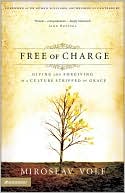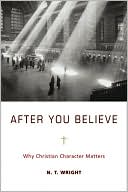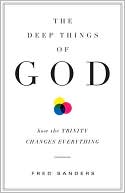Always focus most attention on the most important things, what Paul calls the matters of first importance—and that means the gospel, with all its rich intertwinings, its focus on Christ and his death and resurrection, its setting people right with God and its power to transform. So when we take a dislike of another’s ministry primarily because he belongs to that other generation, must we not first of all ask whether the man in question heralds the gospel? If so, the most precious kinship already exists and should be nurtured. This is not to say that every other consideration can be ignored. Some ministers are pretty poor at addressing homosexuals in a faithful and winsome way, at speaking the truth in love, at coping with the rising relativism without sounding angry all the time, at avoiding the unpretty habit of nurturing a smart mouth. But Paul in Phil 1 understands that whatever the shortcomings and confused motives of some ministers, if they preach Christ faithfully, he will cheer them on, and be grateful.
Thursday, August 18, 2011
Intergenerational Critique
Tuesday, August 9, 2011
BLESS Challenge
The list is a composition of "missional disciplines." It is not enough to have the gospel in our heads; it must be exploding out of our life. Christians who take their faith seriously have longed practiced spiritual disciplines, but most of these disciplines focus primarily on the contemplative (i.e. Bible reading, quiet time, fasting, etc.). These are all well and good, but there is more to the Christian life than contemplating the glory of God. We also need active disciplines that push us to glorify God in the way we live. The purpose of disciplines is to sort of force yourself into doing what you know you should do but have a hard time doing. You want to pray but often forget. So you set a up a daily rhythm to pray at every meal. You want to read your Bible more, so you set aside a time every morning, and so on. The same should go for living out Christ’s mission. You want to share Christ’s love, but there are so many distractions everyday that keep us from the mission. So set up some daily/ weekly disciplines to keep you on track. The goal of these practices is to make mission a non-negotiable part of your daily life. I asked the church to keep the list for one month and see what God would do. So without further ado . . .
B LESS - Find a way to bless at least 3 individuals each day. One of those persons has to be a Christian. One has to be a non-Christian, and the third can be anybody. These acts of blessing can range from anything to dropping an encouraging email, to giving a gift, to compassionately listening to someone's troubles. Committing to this will force you to start each day scheming on how to be on mission.
L ISTEN - Spend one hour per week listening for the leading and prompting of the Holy Spirit. The goal is have the Spirit teach you how to better team up with Him. Remember the Spirit is already on mission and going before us. So ask the Spirit to show you what opportunities you are missing, what obstacles are getting in the way, how can you express His love more fully, etc. “Listening” doesn’t mean you have to sit in an empty room with your eyes shut. That’s sleeping. You can go for a prayer walk, prayerfully read through some Scripture or a book pausing to hear the Spirit’s leading, sing some praise songs, etc. But don’t spend this time telling God your problems. Spend it listening to the Spirit for His leading.
E AT - Share 3 meals per week. One meal is with Christians, one meal is with non-Christians, and the third is with whoever. “Meal” here is loosely defined. It could be sharing a cup of coffee, a donut, whatever. Obviously family does not count. The idea is that eating is a great way to get into each other’s lives. It facilitates conversation, opening up, and sharing the gospel.
S TUDY - Commit to reading the Gospels (Matthew, Mark, Luke, and John) regularly and study how Jesus loved people, proclaimed the gospel, etc. Learn from the Master. Also commit to reading at least one other book. That book could be biblical (i.e. the book of Genesis), Christian (The Prodigal God), fiction, or anything else. It doesn’t have to be a Christian book. The only stipulation is that it has to be a good one. Whatever you read, ask the Spirit to teach you as you go through it. There is no time requirement on this one. It is simply a general commitment to be a consistent learner.
S CRIPT - Keep a daily journal to record how you lived out Christ’s mission for the day. It doesn’t have to be long and wordy. It can be a few short sentences on ways you blessed people, perhaps some opportunities you missed, maybe something you feel God is teaching you. Just as the first point drives you to start the day scheming on how to be on mission, this one drives you to end the day reflecting and learning from what you did well and how you can do better.
The response to this challenge in our church has been overwhelming. If you are interested in joining the challenge, please note it in a comment to this post and pass the word along to others.
Thursday, August 4, 2011
Functional But Not Beautiful
What is needed is a response that takes into consideration the beauty of Truth. We’ve got the truth portion down when it comes to propositions. What is needed is a beautiful and compelling portrait of Truth – the Person. God is inherently beautiful, but many times, we don’t do well at drawing out the inherent beauty of Truth with a capital T.
His conclusion:
Erasing Hell is functional, but not beautiful. From a functional point of view, I recommend it. But I think we need to be pushed on the beautiful side of this equation as well. The gospel shouldn’t shut down our imagination, but rather fuel it and direct it toward the beauty that is inherent to the truth. We need more than analysis; we need artistry.








